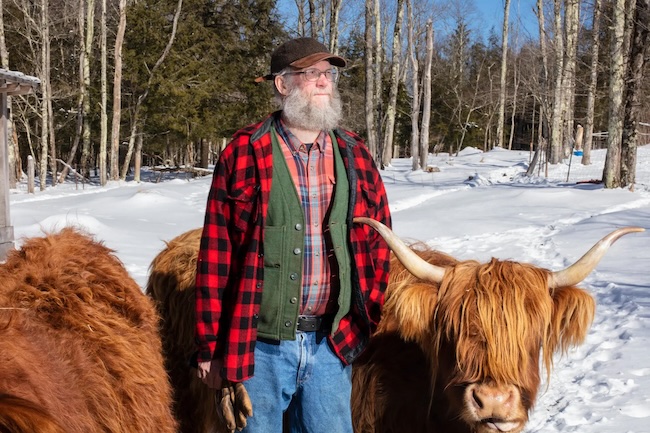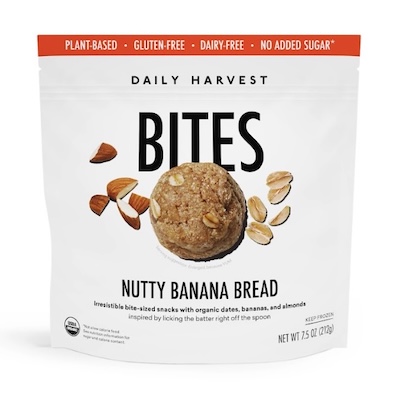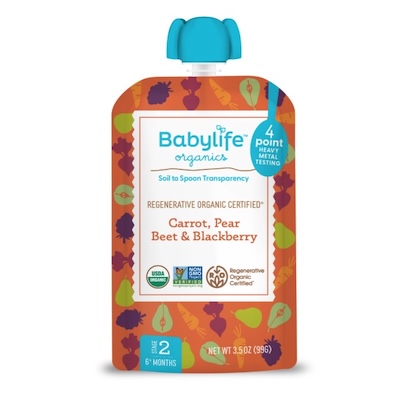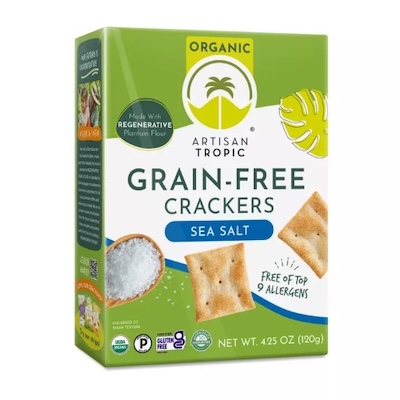
Dramatic Changes to the U.S. Government May Impact the Future of Organic
How Organic Insider operates: We accept no advertising, we have no paywalls and we make our newsletters free to everyone because vital information about our industry needs to get out to as many people as possible. Please consider becoming an Organic Insider+ subscriber, whether you are an individual or a company. Thank you so much.
Just a few weeks into the new administration, very meaningful cuts to all parts of the federal government have been initiated.
This begs the question: What is happening to organic?
CONGRESSIONAL CUTS TO ORGANIC
At the end of December and just before President Trump took office, Congress passed a last-minute spending package to prevent a government shutdown and extended the Farm Bill for another year. Yet, funding for vital organic programs was cut.
Though the cost is minuscule in relation to the overall Farm Bill, just over $10 million per year, the damage to our industry will be severe. As per the National Organic Coalition, the organic programs left unfunded include the following:
- The Organic Certification Cost Share Program: Without it, certification costs will increase significantly in 2025.
- The Organic Data Initiative: Without this program, the USDA will be hampered in its efforts to provide organic producers with the critical data they need to meet growing consumer demand and remain competitive.
- The Organic Certification Trade and Tracking Program: Its defunding, which cancels the purchase of vital technology infrastructure to prevent fraud, will hamper the USDA’s ability to safeguard the integrity of the organic label and enforce the new Strengthening Organic Enforcement (SOE) rule.
“Congress’s failure to fund these essential programs is a short-sighted decision that jeopardizes the future of organic agriculture in the United States,” said Abby Youngblood, executive director of the National Organic Coalition.
Mark Kastel, executive director of industry watchdog OrganicEye, is equally alarmed.
“The cost share program not getting funded and the increased expense of certification, due to the implementation of SOE, will be devastating. The SOE rule was meant to close loopholes and address fraud, but its complexity has created a burdensome amount of paperwork and forced numerous certifiers to raise their prices. Many small organic farmers may decide it is no longer worth it to remain certified, which would be tragic.”
FEDERAL PROGRAM UNCERTAINTY
In early February, with President Trump ordering federal agencies to halt spending across the board, a pause was placed on the $85 million Organic Market Development Grant program and the $100 million Transition to the Organic Partnership Program (TOPP), both of which have caused countless farms, brands and initiatives to halt or abandon their work altogether.
“TOPP’s funding, networking, community outreach and mentorship to further develop the domestic organic market and supply chain were just about to really germinate, and we had been seeing so many early success stories,” said Jen Rose Silverman, a New Mexico-based organic farming consultant. “This is a real blow to the momentum.”
The USDA had previously announced that it was investing up to $2.8 billion in 70 selected projects under the first pool of the Partnerships for Climate-Smart Commodities funding opportunity, and many of these programs were subsequently awarded to organic farmers, brands and researchers.
According to Kate Mendenhall, executive director of the Organic Farmers Association, there has been no information on whether these funds are frozen or going forward, with recipients having yet to receive December payments.
She also said that it is similar to organic farmers who had contracts with the Environmental Quality Incentive Program, the Conservation Stewardship Program, and the Agricultural Conservation Easement Program. However, just last week, on February 20th, the USDA announced that Secretary Rollins was releasing approximately $20 million in contracts for these three programs.
“We have been hearing many stories from our members, and the stress level is incredibly high,” said Kate Mendenhall. “With all of these government contracts they had with various programs, the farmers do not know if they will receive payment, and this uncertainty has caused massive disruptions to their lives and businesses. Yet, TOPP was meant to drive the domestic supply chain of organic, something in complete alignment with President Trump’s America First agenda.”
LABOR ISSUES
Labor is also a significant worry, not just because of the crackdown on undocumented immigrants, many of whom play a vital role in the agricultural system.
“Some of our organic farms have contracts with staffing companies that utilize the H-2A program with workers from Guatemala, El Salvador and Honduras,” continued Kate Mendenhall. “However, much of that work was being partially funded through USAID, and farms that thought they had secured labor lined up, critical for the harvesting season, are not sure what is now happening.”
But this labor predicament is not just limited to farms.
A staffing reduction at the USDA — through cutbacks, encouraged early retirement and mandatory return-to-office policies — will raise the question of whether the government has adequate resources to effectively manage the National Organic Program.
 |
With gratitude, 
Max Goldberg, Founder |
Quick Hits
* At Natural Products Expo West next week, I will be at the Regenerative Organic Alliance’s event at The Ecology Center on Monday, March 3rd. On Thursday, March 6th at 11:30am, I will be co-hosting a conversation about regenerative organic agriculture with Hobbs Wolcott at the Tradin Organic booth (#2033). Please come say hello.
* An organic egg farm has adopted bioacoustic technology to monitor bees.
* Sourced from small-scale, family-owned fisheries in Northern Spain and now available at Whole Foods Market, Patagonia Provisions has launched two new varieties of sardines — White Beans, Lemon & Garlic and Black Beans, Corn & Salsa.
* Key takeaways from 2025 Organic & Natural Health Association conference.
* Vanilla Bean Project, a producer of Regenerative Organic Certified® pure vanilla extract, is reducing its Scope 3 emissions by using wind-powered maritime shipping across the Atlantic Ocean.
* ‘Erewhon 2.0’ is coming with three new locations opening in 2025.
* Merge Impact announced the launch of Planet Portfolio, an innovative “on-pack” investment model that lets consumers directly fund biodiversity restoration with every purchase.
* Lundberg Family Farms spent 12 years developing this rice, and it is now delivering 25% higher yields.
* The Association of Organic Ginger and Turmeric Growers in Peru’s Central Jungle has chosen to invest their Fairtrade premium in a reforestation project to restore 46 hectares.
* Eduardo Cuoco, Director of IFOAM Organics Europe, recaps BIOFACH 2025 in Germany.
* The Center for Biological Diversity petitioned President Trump and HHS Secretary Robert F. Kennedy, Jr. to ‘Make America Healthy Again’ by eliminating toxic pesticides in food.
* 15 restaurant chains that prioritize organic ingredients.
New Organic Products
Bites from Daily Harvest
Daily Harvest just announced its reimagined line of Bites, a USDA certified organic and nutrient-dense superfood snack. Containing no added sugar and served in a convenient, resealable pouch, they are available in four flavors -- Chocolate Chip Cookie Dough, Fudgy Hazelnut Brownie, Peppermint Cacao Truffle and Banana Nut Bread.Brown Udon Rice Noodles from Lotus Foods
Lotus Foods has launched its Brown Udon Rice Noodles in over 1,100 Walmart stores nationwide and online via Walmart Marketplace. Made with just two ingredients -- brown and white rice -- it is USDA certified organic and provides a gluten-free alternative to traditional wheat udon noodles. Vegan, Whole Grain Verified, and offering 2g of fiber and 5g of protein per serving.Regenerative Organic Certified® Baby Food from Babylife Organics
Babylife Organics is the first and only Regenerative Organic Certified® baby food, and it is the only baby food brand to independently test for heavy metals at four production stages: soil, raw ingredients, prepared ingredients and final product. Available in 15 USDA certified organic flavors, including Spinach, Apple, Pear & Blueberry and Carrot, Pear, Beet & Blackberry. For sale on the company's website and exclusively at Whole Foods Market.Grain-Free Crackers from Artisan Tropic
New from Artisan Tropic are Grain-Free Crackers that come in three flavors -- Sea Salt, Chile Lime and Tomato Herb. Made with cassava flour and regenerative plantain flour, they are free from the top 9 allergens, contain no seed oils, and are nut and seed-free. USDA certified organic, Glyphosate Residue Free certified and Gluten-Free Certified.
Weekly News Summaries


Organic Farmers sue USDA Over Deletion of Climate Data from Websites
By Karen Zraick
The data, which disappeared from Agriculture Department sites in recent weeks, was useful to farmers for business planning, the lawsuit said.

Iroquois Valley Farmland REIT and Rodale Institute announce New Partnership to Support Farmers Transitioning to Organic
In 2025, up to 10 Iroquois Valley growers will receive free access to Rodale Institute’s services to support their organic transition.

European Governments Heading Towards GMO Deregulation
By Robert Hodgson
Europe has historically had a very cautious view of GMOs. Tragically, that may be ending with the possible deregulation of gene-edited crops.


Consumer Confusion Holds Back Sales of Natural and Organic Products, Research Finds
By Sam Silverstein
According to an Acosta Group report, a majority of shoppers believe it is important for their groceries and household goods to be natural or organic, but a substantial share are unsure of what those terms mean when it comes to the products they encounter.

PlantBaby closes its Seed Equity Financing Round, Valuation at $20M
By Brooke Just
The round was led by B2 partners, with other investors including Big Idea Ventures, Everywhere Ventures, X Factor Ventures, Women’s Equity Lab Silicon Valley and Babylist.

Organic Farmers Head to D.C. to Advocate for Policy Needs
Farmers, organic organizations and the Organic Farmers Association will be in the nation's capital on March 4th to advocate for supportive policies on key issues, including the next Farm Bill, USDA funding freezes and fraudulent imports.


Pete & Gerry’s Organics acquires Farmers Hen House to Meet Growing Demand for Premium Eggs
With the addition of over 90 family farms and a modern processing facility in Iowa, this combination will support Pete & Gerry’s growth, especially across the Midwest and West.

Extreme Weather Expected to Cause Food Price Volatility in 2025, Cost of Cocoa and Coffee has Already Doubled
By Damien Gayle
The trend towards more extreme-weather events will continue to hit crop yields and create price spikes, Inverto says.

EU Organic Farming Area Increased to 11% in 2023
By Dayeeta Das
The area of organic agricultural land in the European Union increased to 17.7 million hectares, representing 10.9% of the total farmland, a new study revealed.
Want to share this newsletter on social media? You can use this link: Newsletter Link
The material in this newsletter is copyrighted and may be reprinted by permission only. All requests must be in writing. Please use our contact form to request republication rights.
Newsletter Archive
Quick Hits
* At Natural Products Expo West next week, I will be at the Regenerative Organic Alliance’s event at The Ecology Center on Monday, March 3rd. On Thursday, March 6th at 11:30am, I will be co-hosting a conversation about regenerative organic agriculture with Hobbs Wolcott at the Tradin Organic booth (#2033). Please come say hello.
* An organic egg farm has adopted bioacoustic technology to monitor bees.
* Sourced from small-scale, family-owned fisheries in Northern Spain and now available at Whole Foods Market, Patagonia Provisions has launched two new varieties of sardines — White Beans, Lemon & Garlic and Black Beans, Corn & Salsa.
* Key takeaways from 2025 Organic & Natural Health Association conference.
* Vanilla Bean Project, a producer of Regenerative Organic Certified® pure vanilla extract, is reducing its Scope 3 emissions by using wind-powered maritime shipping across the Atlantic Ocean.
* ‘Erewhon 2.0’ is coming with three new locations opening in 2025.
* Merge Impact announced the launch of Planet Portfolio, an innovative “on-pack” investment model that lets consumers directly fund biodiversity restoration with every purchase.
* Lundberg Family Farms spent 12 years developing this rice, and it is now delivering 25% higher yields.
* The Association of Organic Ginger and Turmeric Growers in Peru’s Central Jungle has chosen to invest their Fairtrade premium in a reforestation project to restore 46 hectares.
* Eduardo Cuoco, Director of IFOAM Organics Europe, recaps BIOFACH 2025 in Germany.
* The Center for Biological Diversity petitioned President Trump and HHS Secretary Robert F. Kennedy, Jr. to ‘Make America Healthy Again’ by eliminating toxic pesticides in food.
* 15 restaurant chains that prioritize organic ingredients.




